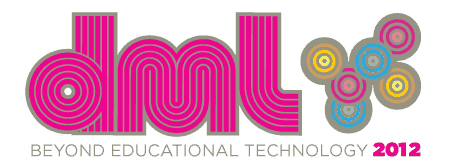DML: It Depends on Where you Look: Understanding the Role of Digital Media in Civic Learning and Engagement
New media ecologies have created new contexts, tools and demands for civic learning. Technological changes have provided some youth with greater access to communities of practice where adults and peers work together towards a common goal (Ito et al., 2008), and in the process, may learn civic skills (Jenkins et al, 2009). Furthermore, scholars have called attention to how the increasing ubiquity of digital media as a conduit for public life presents new challenges and requires new skills for civic and political participation (Jenkins et al, 2009; Rheingold, 2009). The MacArthur Research Network on Youth and Participatory Politics (YPP) is examining how digital media may be changing the face of youth civic and political engagement and the implications for youth civic learning.
We ask, “What is the role of digital media in civic learning?” We draw on three studies, which examine this question in different ways and provide different insights. The first study draws on case studies of exemplary youth organizations and networks where new media tools and practices are woven throughout the fabric of the community. This study illustrates, through an examination of online and offline youth civic practices, the role that digital media can play in supporting and transforming the learning of civic skills. The second study draws on interviews with civically and politically engaged youth about their civic identities. This study explores the role of digital media in civic learning when youth are involved in more "traditional" civic or political contexts. The third study draws on a national survey of youth values and behaviors related to civic skills that are increasingly important in a new media rich public. This study draws attention to the how youth are adapting to, and may need additional support for, engagement in civic and political life where the norms of information production and consumption and communication may be changing.
The panel will be structured as a series of brief presentations followed by audience discussion. The chair will provide background on the overarching question and the work of the YPP network, followed by brief presentations from panel members and discussant.
An interesting feature of this panel is that the different methodologies yield slightly different answers to the question “What does ‘civic learning’ look like in the digital age?” One study finds that digital media can support civic learning in and around traditional contexts, but isn’t necessarily a “game changer”; offline civic learning experiences remain relevant. Another study suggests that putting traditional civic skills into practice comes with new challenges when carried out through digital tools and networks. The final study finds that members of participatory cultures engage in practices that are central to their future civic lives, some common to traditional civic organizations and others relevant to the unique experiences of participatory culture civics. By comparing divergent findings, we identify opportunities, challenges, and puzzles about the role of digital media in youth civic learning. This panel highlights the importance of multi-disciplinary and multi-method approaches understanding digital media and learning.



